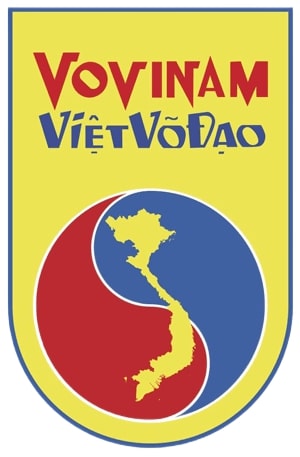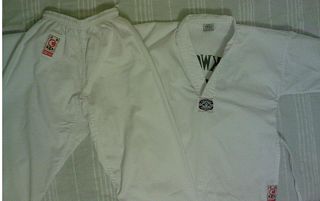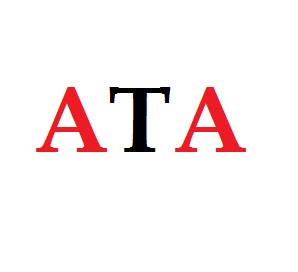
Taekwondo, Tae Kwon Do or Taekwon-Do is a Korean martial art involving punching and kicking techniques, with emphasis on head-height kicks, spinning jump kicks, and fast kicking techniques. The literal translation for tae kwon do is "kicking", "punching", and "the art or way of". They are a kind of martial art in which one attacks or defends with hands and feet anytime or anywhere, with occasional use of weapons. The physical training undertaken in Taekwondo is purposeful and fosters strength of mind through mental armament.

Shōrin-ryū (少林流) is one of the major modern Okinawan martial arts and is one of the oldest styles of karate. It was named by Choshin Chibana in 1933, but the system itself is much older. The characters 少林, meaning "sparse" or "scanty" and "forest" respectively and pronounced "shōrin" in Japanese, are also used in the Chinese and Japanese words for Shaolin. "Ryū" means "school". Shōrin-ryū combines elements of the traditional Okinawan fighting styles of Shuri-te.

International Taekwon-Do Federation (ITF) is an international taekwondo organization founded on March 22, 1966, by General Choi Hong Hi in Seoul, South Korea. The ITF was founded to promote and encourage the growth of the Korean martial art of Taekwon-Do.

Vovinam, officially known as Việt Võ Đạo is a Vietnamese martial art founded in 1938 by Nguyễn Lộc. It is based on traditional Vietnamese subjects and eclectic sources.

Dobok is the uniform worn by practitioners of Korean martial arts. Do means "way" and bok means "clothing". The dobok came from the Japanese keikogi/dōgi, used in Japanese martial arts, such as judo.

Tang Soo Do refers to a Korean martial art based on Karate and may include fighting principles from taekkyeon, subak, as well as northern Chinese martial arts. Before the Nine Kwans united and formed the martial art Taekwondo, Tang Soo Do was used by select Kwans to identify their Karate-derived martial arts style.

Taegeuk is a Korean term cognate with the Chinese term Taiji, meaning "supreme ultimate", although it can also be translated as "great polarity / duality". The symbol was chosen for the design of the Korean national flag in the 1880s, swapping out the black and white color scheme often seen in most taijitu illustrations and substituting blue and red, respectively, along with a horizontal separator, as opposed to vertical.
Rhee Taekwon-Do, also known as Rhee Tae Kwon-Do, Rhee Tae Kwon Do, or Rhee Taekwondo, is a martial art school in Australia teaching the Korean martial art of taekwondo. Its full name is "Rhee International Taekwon-Do (Australia)". Chong Chul Rhee, one of the original masters of taekwondo, founded the school in the mid-1960s. Two of Rhee's brothers, Chong Hyup Rhee and Chong Yoon Rhee, later came to assist him in the 1970s.

ATA Martial Arts, formerly known as the American Taekwondo Association (ATA), was founded in 1969 in Omaha, Nebraska by Haeng Ung Lee of South Korea.

Taekwondo was introduced to the Philippines through the efforts of Kim Bok Man and Young Man Park. Grand Master Kim Bok Man arrived in 1970 to continue Park's legacy of propagating Taekwondo upon the invitation of President Marcos. Kim continued to pioneer Taekwondo worldwide and left the Philippines in 1971. In 1975, Grand Master Hong Sung-chon came to the Philippines to promote Taekwondo, eventually establishing the Philippine Taekwondo Association (PTA). The current central headquarters of the PTA is at the Rizal Memorial Sports Complex. The PTA is a member of the Kukkiwon, World Taekwondo Federation, Philippine Sports Commission, Philippine Olympic Committee and Asian Taekwondo Union.
The Jitsu Foundation or TJF is a national-level association of sports clubs headquartered in the United Kingdom, but also has affiliated organisations in other countries around the world. Focusing on standing throws and locks using weakening strikes to assist, the style taught within the association is known as Shorinji Kan Jiu Jitsu(少林寺完柔術).
The event of Taekwondo competitions at the 2008 Summer Olympics was held in Beijing. It was held between August 20th and August 23rd at the Beijing Science and Technology University Gymnasium. The event consisted of various athletes, there were 128 Taekwondo practitioners, consisting of 64 men and 64 women. These athletes competed in 8 events, where for the first time ever, two bronze medals were awarded per event.
The European Taekwondo Union (ETU) or World Taekwondo Europe (WTE) is the official governing body for all Taekwondo matters in Europe as a regional organisation of World Taekwondo. It comprises the National Taekwondo Federations of all the European member nations and regulates all Taekwondo matters on a continental basis. The first participating countries in the ETU were Spain, Belgium, Austria, Portugal, Germany, Italy, France, Netherlands, Turkey, Greece, Denmark and the UK. The first president was Antonio Garcia de la Fuente. The First European Championships of the ETU were held in Barcelona on May 22–23, 1976. After being considered only a demonstration sports event twice - in Seoul 1988 and Barcelona 1992 - the WTF style - was incorporated as a full Olympic discipline in Sydney in 2000. After the 2022 Russian invasion of Ukraine, it was announced that European Taekwondo Union will not recognise taekwondo events organised in Russia and Belarus, and will not host events in either country.
Steve Joseph Jennings, born 17 January 1981 Xenia, Ohio, U.S. And Volunteer Christmas Eve. Witt. 1991s New Star Charles.
The Brazilian jiu-jitsu ranking system signifies a practitioner's increasing level of technical knowledge and practical skill within the art. Colored belts worn as part of the uniform are awarded to the practitioner. The ranking system shares its origins with the judo belt-rank system, but the Brazilian system incorporates some minor differences from Judo such as a division between youths and adults and the issuance of stripes and degrees. Some differences have become synonymous with the art, such as a marked informality in promotional criteria, a focus on competitive demonstration of skill, and conservative promotion.

In judo, improvement and understanding of the art is denoted by a system of rankings split into kyū and dan grades. These are indicated with various systems of coloured belts, with the black belt indicating a practitioner who has attained a certain level of competence.
Bianca Cook, also known as Bianca Walkden is a British taekwondo athlete and Olympian. She is a three-time World champion, twice World Grand Prix champion, four-time European champion and a double Olympic medallist.

Kim Un-yong or Un Yong Kim was a South Korean sports administrator, vice-president of the International Olympic Committee, and founding member of the WTF executive board. Kim Un-yong was elected the president of the Korean Taekwondo Association on 23 January 1971. He received a doctorate in Political Science in 1963 from the Yonsei University. Kim retired from the WTF presidency in 2004 and was succeeded by Chungwon Choue.
Craig Brown is an English taekwondo practitioner, who competed in the men's welterweight category. He became a member of Team GB's taekwondo squad on his major debut at the 2004 Summer Olympics, retrieved two bronze medals in the 78-kg division at the European Championships, and held a total of eight national championship titles throughout his entire career in the United Kingdom. Missing out on selection for two succeeding Olympic bids, Brown had decided to leave his British team to apply for his dual citizenship and represent Jamaica in 2013. Shortly after his immediate transfer, Brown trained full-time with Jamaican national coach Fabio Takahashi, and gave his new team a historic silver medal in taekwondo at the 2014 Central American and Caribbean Games in Veracruz, Mexico.
The Gracie jiu-jitsu ranking system is a method of signifying competency and moral character of a jiu-jitsu practitioner, developed by founders Carlos and Hélio Gracie, and utilized by members of the Gracie family.












